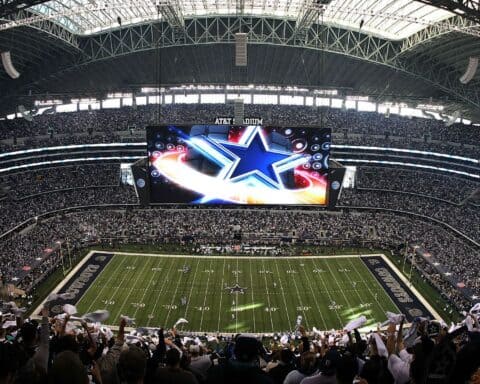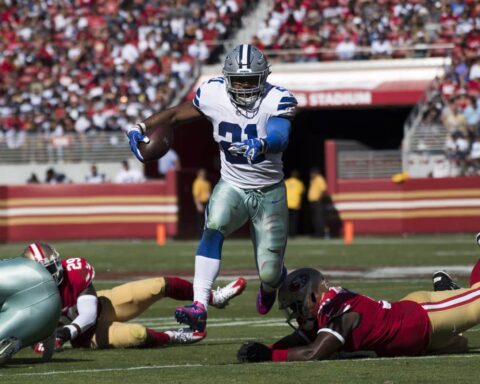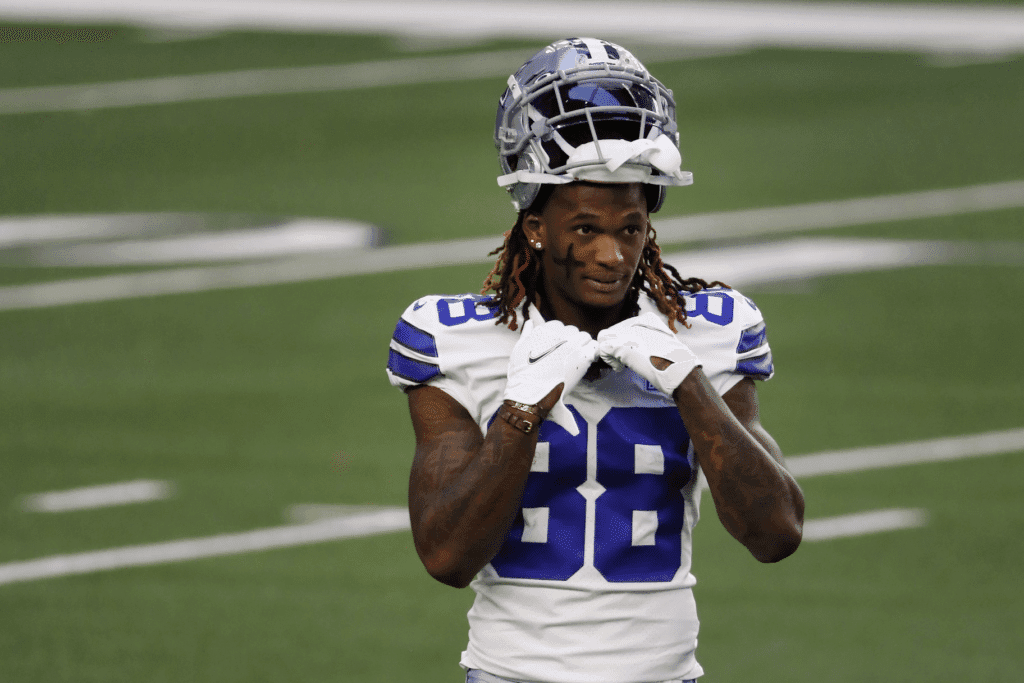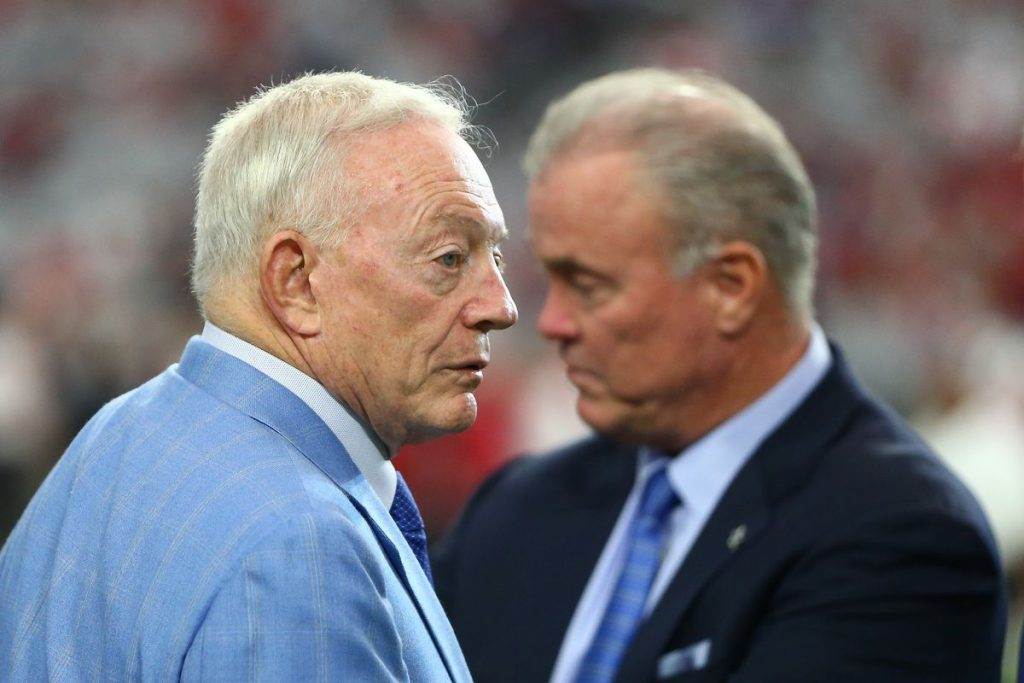This Dallas Cowboys team has more flaws than any team with Super Bowl aspirations should, but they could repair one flaw. The flaw has cost the Cowboys several games, and it will take numerous players to step up to get it right.
When a fan thinks of this team’s flaws, a list can easily be made. The defense, the offensive line, the wide receivers, the coaching, and the front office are just a few problems that come to mind.
The running game is one flaw that stands out and can be easily rectified. It’s not a complex issue, but the current coaching staff seems to be stuck in a loop, making the same mistakes.
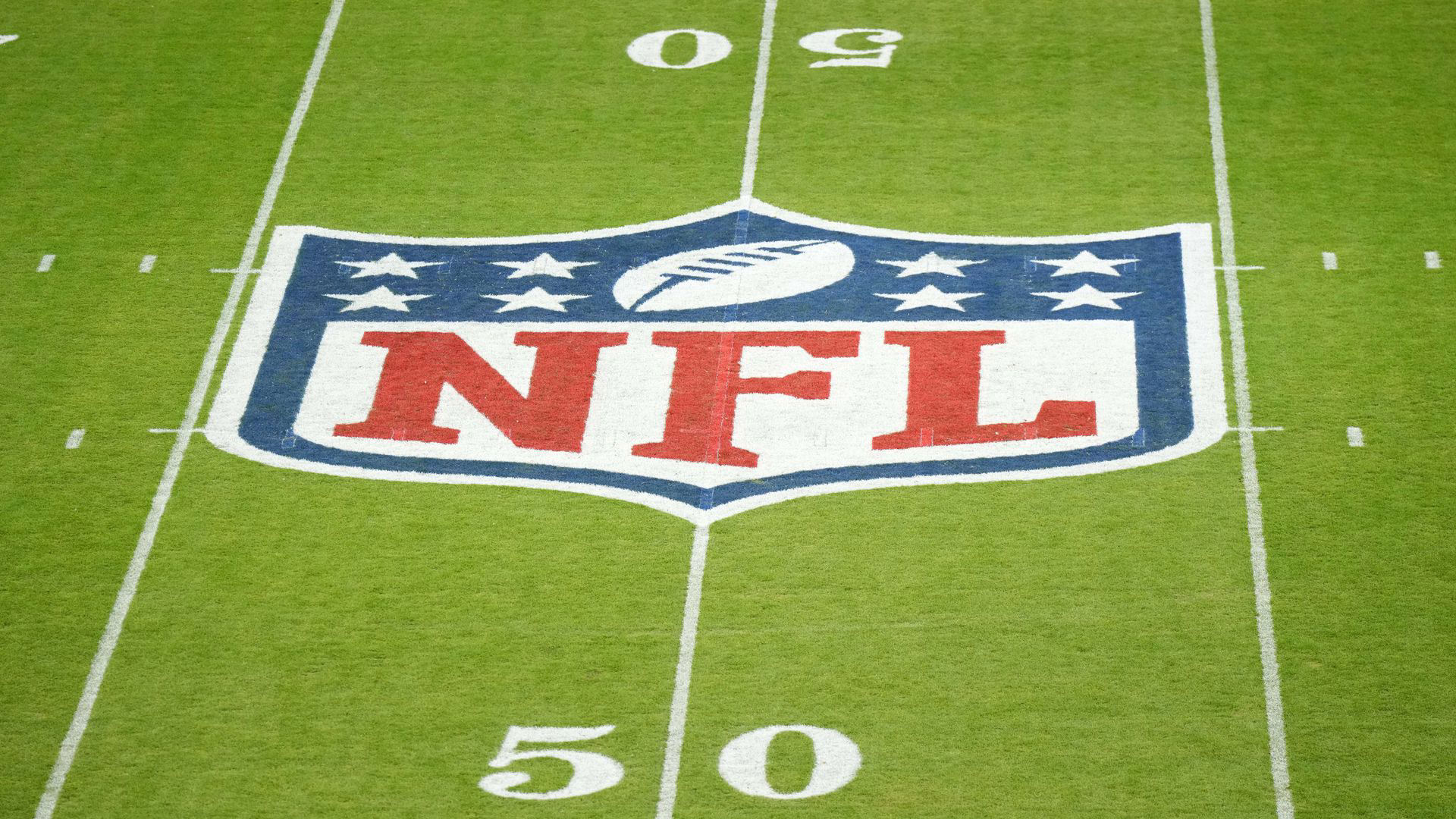
Step One: A Copycat League
The NFL is a league that thrives on learning from others. The Dallas Cowboys, however, seem to have overlooked the importance of studying other offenses and adopting what works.
It is not a difficult concept to put on the tape of other teams and use some of their plays or put their twist on the plays.
The Cowboys coaching staff can look at an old rival, the San Francisco 49ers. This team lost its number-one running back but got nearly the same production from the backup.
The 49ers have not re-invented the wheel, but they incorporate motion and misdirection and teach receivers to block.
Conversely, the Cowboys just run the ball up the middle with little to show for it. The running game is not fancy or misleading.
Coaching is a significant issue, and if Mike McCarthy fixes the vanilla schemes and takes ideas from other teams, that could go a long way to fixing the running game.
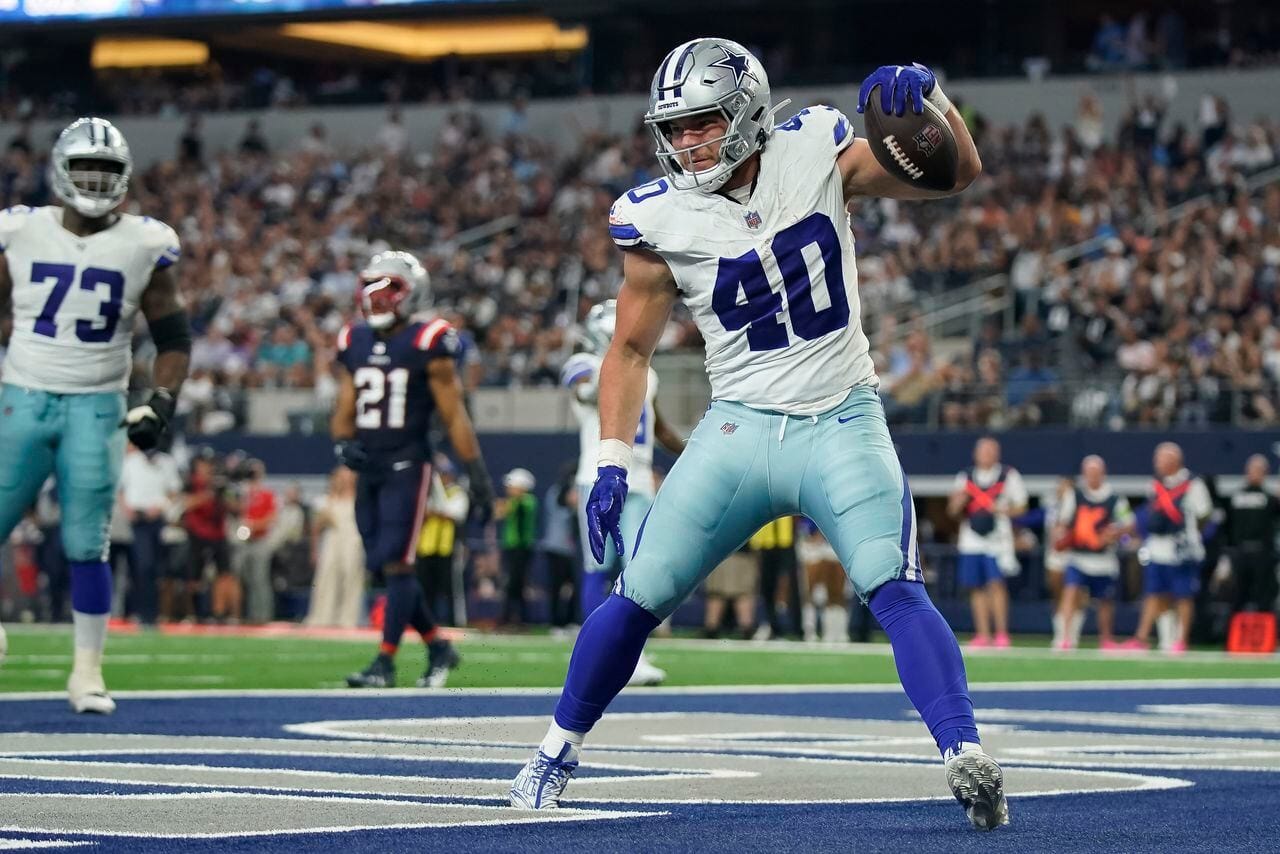
Step Two: Change Up the Running Back Room
This is obviously one issue all fans see. The current running back room is awful, and a change is needed.
Jerry Jones has made it abundantly clear that the Dallas Cowboys are not going to get outside help by trading for players. Therefore, the only options are most likely in-house players.
Ezekiel Elliott should not be an option after his performance in the first six games. Most other teams would have cut him at this point and found a replacement, but not the Dallas Cowboys.
Deuce Vaughn has not had very many touches, and the touches he has gotten have not created anything for the offense. To the dismay of many fans, Vaughn is nothing more than a practice squad guy.
Rico Dowdle is the running back who should be carrying the load of the running game. In the one game where he received the vast majority of carries, the offense was able to get a resemblance of a running game going.
Who should be the running backs behind Rico Dowdle? Funny you should ask because the simple answer is Dalvin Cook and Hunter Luepke.
Hunter Luepke has proven time and time again this year he can be an offensive weapon. He can catch the ball out of the backfield and run when given the chance.
Luepke has a little bit of a Peyton Hillis vibe going for him. If given the opportunity, this could be the player who takes over the backfield for the rest of the year.
Call up Dalvin Cook and cut Ezekiel Elliott because the experiment is over, and Elliot has proven to be the weakest link.
At this point, Dalvin Cook is an unproven commodity, and he could be another Ezekiel Elliott, but the team is not going to lose much by giving him a shot.
Rico Dowdle, Dalvin Cook, and Hunter Leupke could be the backfield the Cowboys need and one that can produce.
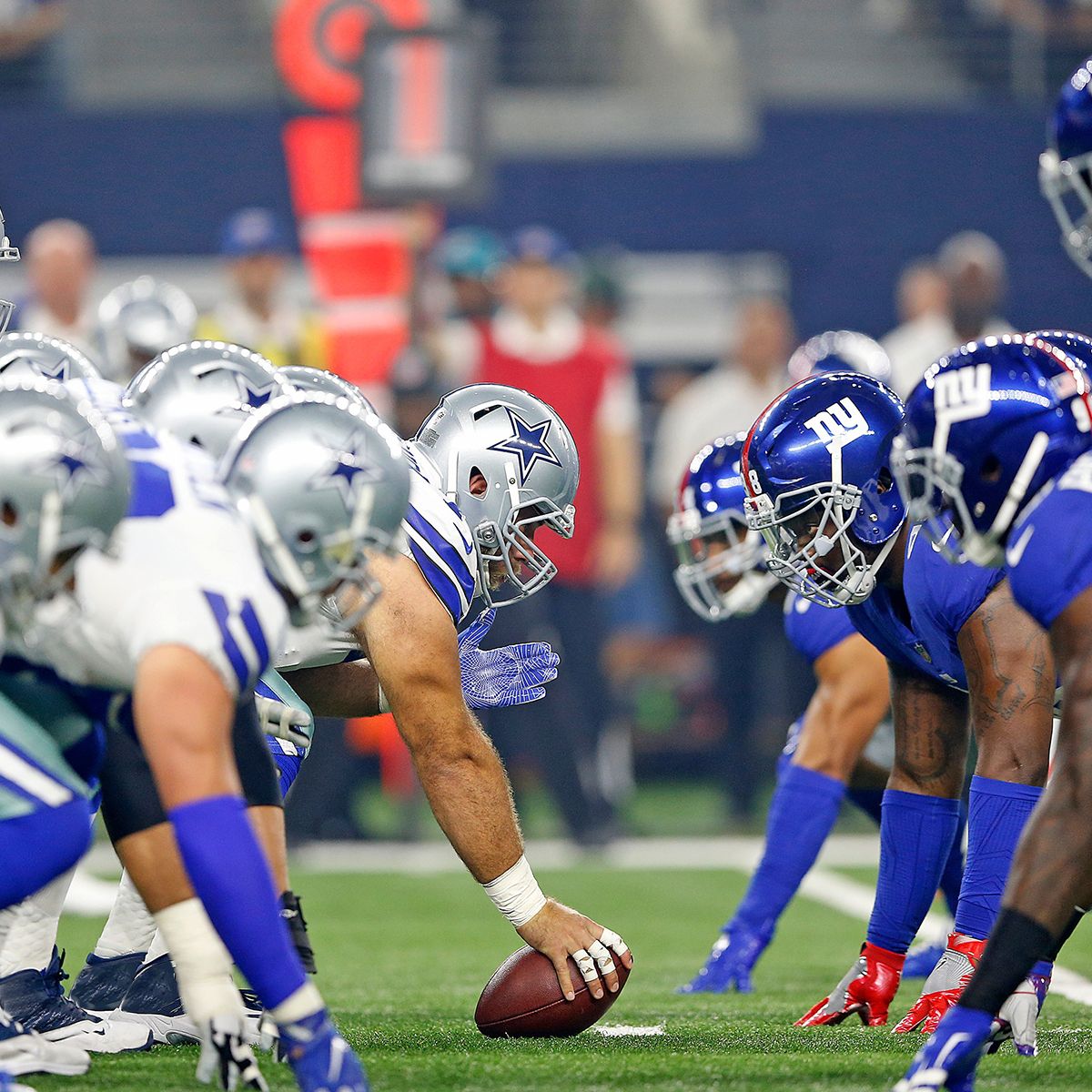
Step Three: Stop Zone Blocking
The Dallas Cowboys offensive coaches have been running a zone-blocking scheme, which is not working with the offensive linemen they are employing.
A zone-blocking scheme is an offensive line strategy focusing on footwork, blocking rules, and communication among players. Its main goal is to create movement along the defensive front while preventing penetration into the backfield. Additionally, it keeps the defense off balance by running various plays from the same formation.
An offensive lineman in the zone blocking scheme should ask three questions at the line of scrimmage:
- Am I on the playside or backside?
- Am I covered or uncovered?
- Is the player on my inside covered or uncovered?
These questions help clarify expectations.
**Key Rules:**
- If a defender is on the outside shade, the lineman generally takes him 90% of the time, except for rare stunts where the inside lineman might step in.
- If a defender is head-up, the lineman will take him 50% of the time, depending on the defender’s angle. The covered lineman should chip him to aid the uncovered lineman.
- If a defender is on the inside shade, the inside lineman takes responsibility 90% of the time, with the covered lineman chipping to assist.
Linemen’s collaboration is vital to their success on the field. By fostering open communication and a shared understanding of blocking assignments, teams can significantly boost their effectiveness.
Now that you have an understanding of a zone blocking scheme, does it work? Or would a power scheme fit this younger offensive line better?
While inside zone blocking can be physical through double teams on defensive linemen, lead runs like “Iso” force linebackers to engage with blocks. The power scheme combines these elements: a double team at the point of attack to drive a defensive lineman off the ball and a lead blocker targeting a linebacker.
Coaches favoring non-power schemes often emphasize maintaining a physical approach. Power creates new gaps and elicits quick defensive reactions, making it one of the best schemes for setting up play-action deep shots.
Power has three main elements that define the scheme: a double team at the point of attack, a kick-out block of the EMOL (end man on the line of scrimmage, either a DE or an OLB in a 3-4), and a lead block through the resulting hole.
The power run-blocking scheme would be much easier for the Dallas Cowboys to handle. There would be fewer decisions to make, and they would just need to block.
This will also allow the Cowboys big offensive lineman to push up-field and the running back to choose holes to run through. Having a fullback who can lead block will also free up the second level to make big gains.
These are the three steps to fixing the Dallas Cowboys’ running game, a major flaw in the offensive attack. Fixing the running game will also fix most other aspects of the game because now you are controlling the clock and freeing up the passing game.


